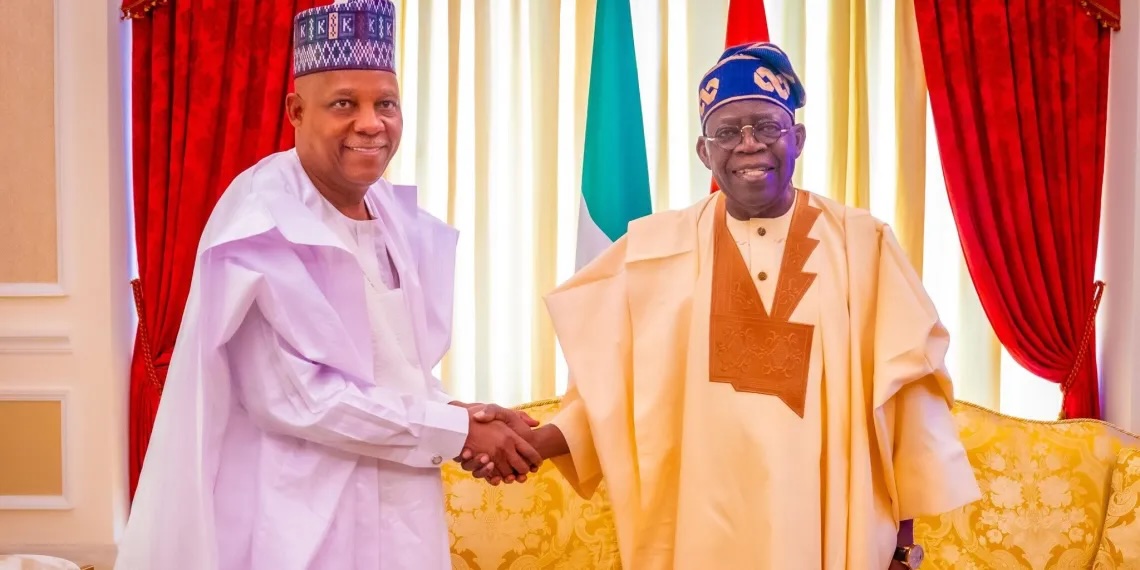Africa’s rising debt profile has become a source of profound concern. Currently, African nations are grappling with so many challenges such as debt servicing, poverty, diseases, climate change, illiteracy, insecurity, hunger, high unemployment rate among the youths, environmental degradation and bad governance to mention but a few.
Today, most African nations depend on external loans and foreign aids in order to survive. However, majority of the leading traditional aid donors have slashed support and are diverting funds to other priorities. For instance, data from the organisation for Economic Co-operation and Development (OECD) have fallen by 7 per cent with African share of official developing assistance dropping. Another major problem which African nations are confronted with is the lack of representation in global institutions.
Currently, China is advocating for a more balanced inclusive international order. The sources of most Africa’s external financing are mostly from the Multilateral Institutions which account for nearly 39 per cent while private lenders such as the Banks and Asset Managers account 35 per cent and bilateral loans from other Government account for 12 per cent. Both the World Bank and IMF have their Guidelines which every nation that wants to borrow must be strictly adhered to.
Some of these stringent conditions that must be complied with include but not limited to the following. One, the borrowing country must be ready to devalue its local currency. Two, the country must be ready to reduce its work force in the Public Sector and capacity building to be handled by the lender. Most of the loans that are usually taken from the World Bank and IMF have an interest rate of 3-5 per cent with a moratorium of at least five years.
Recently, the Speaker of the House of Representative, Honourable Abbas Tajudeen delivered a thought provoking speech at the Opening of the 11th Annual Conference and General Assembly of the West African Association of Public Accounts Committee (WAAPAC) organised in collaboration with International Development Partners in Abuja.
In his keynote Address the speaker stated that in 2022, the total debt owed by African nations totaled $1.8 trillion. According to him, several African countries are now in serious debt. They include Sudan, Angola, Ghana, Kenya, South Africa to mention but just a few. He further stated that Governments of these nations are spending more on debt servicing rather than on other essential sectors such as health, education and power.
Detailed Analysis of the debt data showed that several African countries are now in dangerous debt to Gross Domestic Product (GDP) territory: For instance, Sudan at 344 per cent, Ghana at 84 per cent, Angola at 136.8 per cent, Kenya at 70 per cent and South Africa above 77 per cent. According to the recent statistical data, Nigeria debt trajectory showed that it has reached a critical point. He added that as of the first quarter of 2025, the total public debt stood at N149.39 trillion. In most of the African nations, the borrowed funds have not yielded any tangible benefits for Africans.
This is simply because these loans were taken without strategic investment. These loans could have been expended in alleviating poverty, providing infrastructural facilities and jobs for the teeming unemployed youths who constitute the bulk of the population. Today, it is obvious that the situations in most of African countries are very pathetic. Millions of people are going to bed hungry, there is high unemployment rate among the youths, poverty rate is very high and millions of school age children are out of school.
At the just concluded 66th Annual Conference of the Nigerian Economic Society (NES) held in Abuja, the Federal Capital Territory (FCT), the Former Nigeria Finance Minister who is currently the Director-General of the World Trade Organisation (WTO) Dr Ngozi Okonjo-Iweala has advised African leaders to rethink its development trajectory and move away from aid dependency towards a trade and investment driven model that positions the continent as a global Economic power house.
Moreover, she also encouraged African leaders to harness the African working age population, the abundant available land and mineral resources essential for the green energy transition. Obviously, the present decade has been unpleasant for African nations. The crisis of development on the economic, social and political front has intensified, necessitating deliberate inward looking action to reverse the trend.
Frankly, this is the time for African leaders to look inward to solve their nagging challenges. The continent can no longer depend on foreign aids/loans for assistance. Africa has no business being a poor continent. Therefore, for the way forward, here are my recommendations for African leaders:
Massive Investment in Education Sector: The Holy Scripture says: “My people perish due to lack of knowledge.” In order for African Nations to attain International development goals, she must invest massively in Human Capital Development;
Investment in agriculture: A neglected Sector: One major area where African leaders need to improve is Agriculture. African nations have a golden opportunity to bolster its economic resilience through strategic investment in Agriculture. Over the years, there has not been a commensurate increase in investment in farming;
Investment in businesses: African leaders should make sure that they create enabling environment for businesses to thrive. A policy framework should be developed to encourage the small and medium scale Enterprises to grow;
Investment in Energy: Energy is very critical as far as development is concerned. In fact, no nation can achieve meaningful development without adequate energy supply to drive economic growth and sustainable progress. In view of this, African leaders should as a matter of urgency focus on revitalising the continent’s energy landscape through sustainable and alternative energy solutions;
Capacity building in mining sector: The continent is blessed with abundant mineral resources which are yet to be tapped. It is therefore imperative that African leaders should try as much as possible to strengthen its mining sector.
Finally, I would like to advise African leaders to embrace Good Governance, Transparency and Accountability in order to move the continent forward.
Oladipupo wrote via: [email protected]






